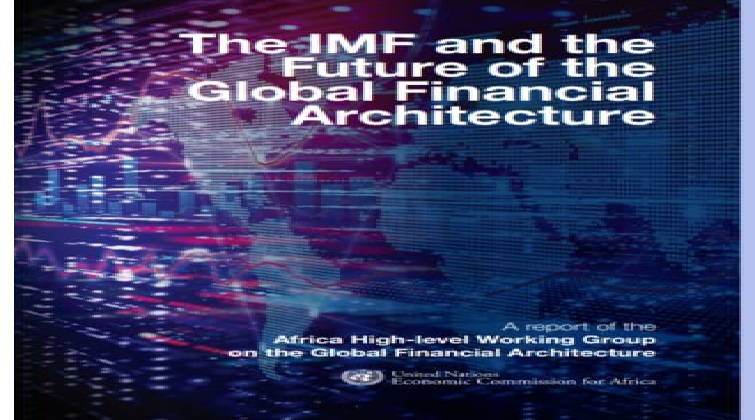New Report Advocates for IMF Reforms to Empower Low and Middle-income Countries - ENA English
New Report Advocates for IMF Reforms to Empower Low and Middle-income Countries

Addis Ababa December 1/2024 (ENA) The United Nations Economic Commission for Africa (ECA) launched a new report that urges the International Monetary Fund (IMF) take measures in order to empower law and middle income countries.
The IMF and the Future of the Global Financial Architecture, at the Ministerial Segment of the 5th Extraordinary Session of the African Union Specialized Technical Committee (STC) on Finance, Monetary Affairs, Economic Planning and Integration held in Abuja, Nigeria.
Deputy Executive Secretary and Chief Economist at the ECA Hanan Morsy said the report was prepared in consultation with the African Ministers of Finance, Planning, and Economic Development, the African Union, and the African Development Bank.
It proposes a new work agenda for the International Monetary Fund (IMF) “to better respond to the challenges that African low- and middle-income countries are facing.”
The Report is grounded on the work of the Africa High-level Working Group on the Global Financial Architecture, which is coordinated by the ECA.
This Group comprises African Ministers of Finance, Planning and Economic Development, the African Union, the African Development Bank, Afreximbank, and the World Bank. It includes the participation of IMF staff and Executive Directors.
According to Morsy, the analytical work of this report has fostered a more productive dialogue with the IMF and has also been instrumental in catalysing tangible progress on several critical issues - these include increased concessional financing, a 50 per cent general quota increase, approval of the use of SDRs to purchase hybrid capital, advancing reforms to the RST to better serve vulnerable countries, enhanced representation for Africa on the IMF Executive Board through a third Chair, and reduction of IMF Surcharge.
Today’s economic landscape demands a reimagined IMF that genuinely serves all its member countries, she said.
This report advocates for changes to empower vulnerable nations, fostering a more inclusive global financial system, stated Morsy.
“While substantial progress has been made, the report acknowledges that much work remains. The collaborative efforts among African nations and stakeholders will be crucial in pursuing an equitable and efficient financial architecture that addresses current challenges and future developments,” she added.